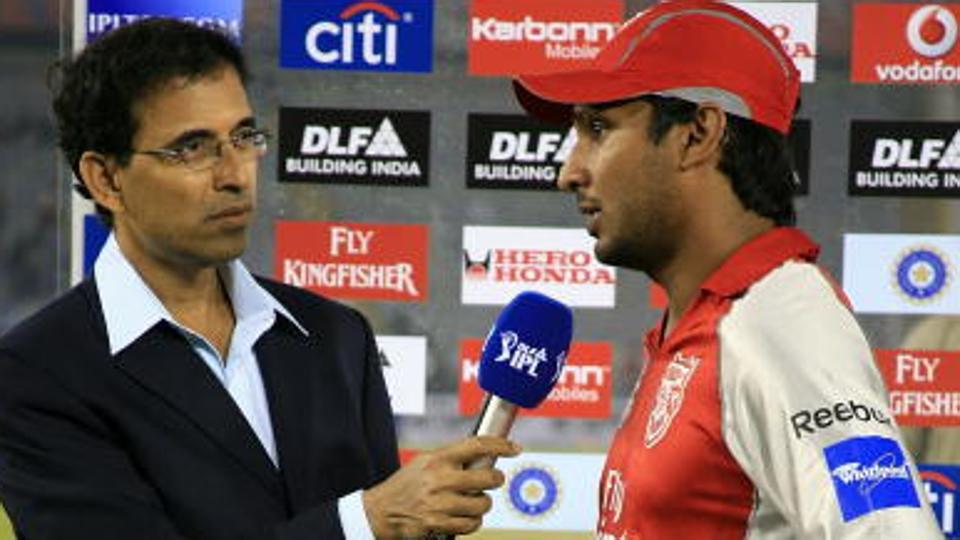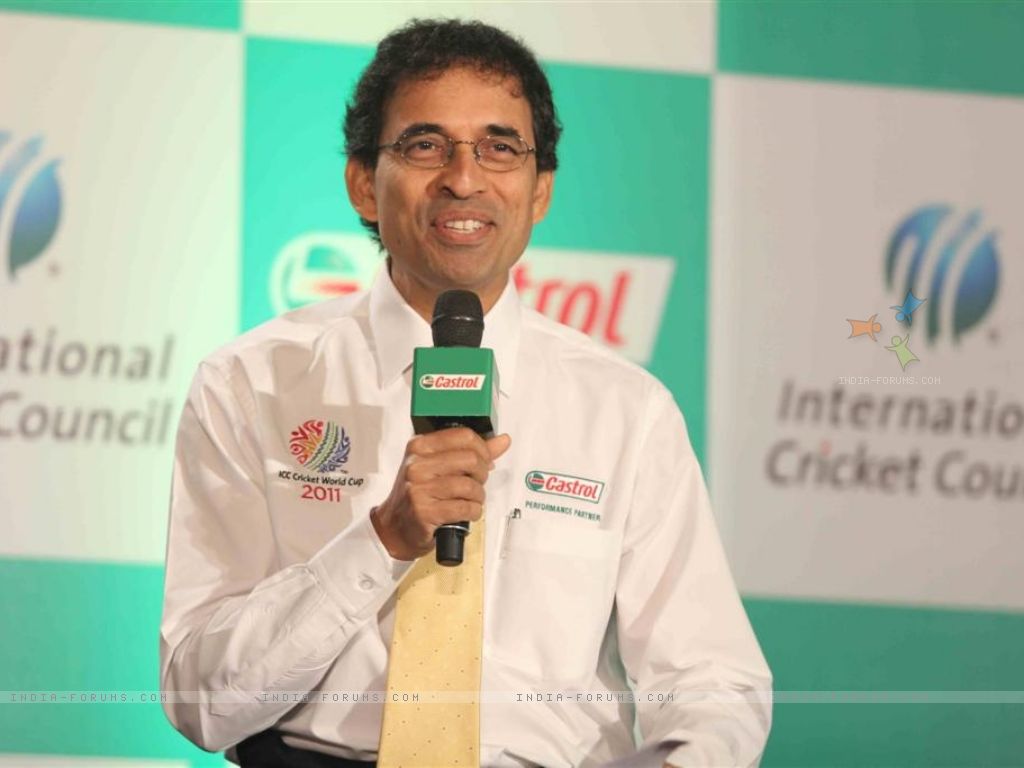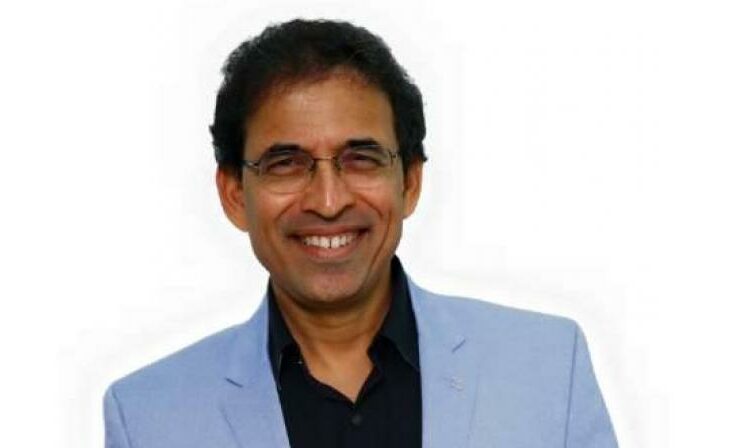Is it just the 11 players from the 2 teams that play on 22 yards?
Perhaps, there’s a larger construct to Cricket we’ve got to appreciate.
Everytime a ball is bowled, a four scored, a run saved, a run-out affected or a wicket taken or even when an appeal is levelled- the fan plays along.
The talents entertain on the field. But the emotions flow from outside it.
Even that’s not all.
What would the game be if it weren’t for the voices that narrate it? At its primal stage, Cinema seemed rather odd without dialogues. The acting regardless of it being howsoever alluring looked pale in absence of narration.
Then came proper full-fledged movies. Today, mime has resorted to being a vignette of nostalgia.
The same applies to this great sport of ours.
Can you even imagine watching a repeat telecast or even minor fragments of the highlights without commentary?
Who can?
It’s dull. It’s like seeing a play with no dialogues. At the apex of philosophy and physiology, there remains a poignant thought. That the same way all senses were given to man to work in cohesion and unity, Cricket was allocated the commentator to make often a crude art-form seem like poetry.
It’s the commentator that connects the umbilical chord of the sport with the viewer.
He or she is not just a direct descendant of the game.
A commentator births the timeline of live action, time and again.

Harsha Bhogle during post-match conference (Image: Hindustan Times)
Where players are the physical embodiment of the sport, the commentator is the soul.
And it’s not hard to understand why they hail Harsha Bhogale as the heart and soul of Cricket commentary in India.
Perhaps, it only makes sense to suggest that he’s not only the voice of Indian Cricket, rather the assurance that the voice has grace.
It’s authentic, it’s passionate, and- it’s one of a kind.
Harsha is both- a voice of passion and reason, from behind the mic
You’ll never find him tear a player down. This doesn’t mean he cannot critique a poor performance. But Harsha doesn’t extend heavy-handed, unfound criticism. His voice, often appearing as that healing balm that may cheer a team experiencing a period of capitulation.
For someone who once described a delay by English bowlers in bowling to India (England’s Tour to India in 2016) in midst of a Test brilliantly suggesting, “It seems the English bowlers are reading page 304 of a Charles Dickens’ novel,” only a combination of analogies may suffice in explaining this poignant speaker.
Would it be wrong to suggest Harsha is that rare gem that appeals to both the cola-drinking generation as well as charms the green-tea sipping, MacBook carrying corporate strategist- both of whom seek in Cricket a respite from everyday life?
Time well spent watching cricket often becomes time well spent being narrated the ever-changing vagaries of this truly fascinating sport through Harsha.
He’s to cricket commentary what David Croft is to Formula 1 commentary.
 He’s a master of words, yet never condescending.
He’s a master of words, yet never condescending.
His voice can echo both- the concern among players in a tense situation as well as the glee they feel during a celebration.
And in the midst of both despair and triumph stands Harsha’s emotionally controlled, intelligent analysis of the game.
But at all times, Harsha’s voice resonates a balance as if whilst speaking he’s saintly walking a tight-rope between emotions and narration.
Truly speaking, it must be tough.
Supremely tough, even.
Thankfully, in an age of digital disruption where the sport stands at a confluence of technology and exhilaration, we’re seeing more and more of Harsha, instead of only listening to him.
The gentle smile, the good-natured wit, the charm, the fantastical analogical role he plays, how can there be another Harsha?
Our sport has been blessed to have had services of icons like Henry Blofeld, the late greats- Tony Grieg and Tony Cosier. If Sachin was the cricketer, the sport loved back, then the mic, it could be said, reciprocated love for Sir Richie Benaud.
But few continue to be loved the way Harsha is in the contemporary narrative of the game.
It is even rarer for a non-cricketer to command as much interaction amongst his admirers as love.
When he speaks to players, he doesn’t have to stifle them or hold them against their wishes to get them to speak.
You love interacting with Harsha.
Possibly, if he’d ever sent you a Friend-Request on his own you’d never waste an additional second before accepting it. You’d probably be intimidated if Sir Ian Chappell did.
Harsha would never chide a cricketer needlessly nor appear as someone’s ‘fan’ in order to lavish effusive praise.
He’ll whack the player responsible for grassing a sitter in the same way he’d applaud a cover drive.
His articulation doesn’t have words that an Oxford would ill-afford
Harsha doesn’t paint imaginary fancies around the game.
He lifts the game to become a spectacle for the informed viewer.
You’d rather have Harsha commentating than a player needlessly sledging at any time.
As this ageless wonder turns 57, giving the fan fitness goals looking young as ever a thought goes out to those who’ve disliked him and called him names.
When did you last encounter a profoundly educated man who couldn’t spell nor suggest the meaning of the term ego?

